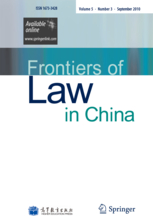
A Juris Doctor, Doctor of Jurisprudence, or Doctor of Law (JD) is a graduate-entry professional degree that primarily prepares individuals to practice law. In the United States, it is the only qualifying law degree, while other jurisdictions, such as Australia, Canada, and Hong Kong, offer both JD degrees and other undergraduate qualifying law degrees.
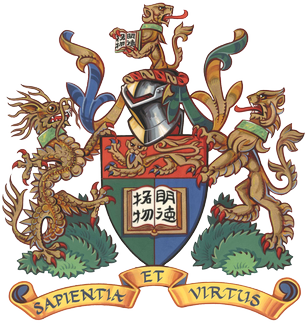
The University of Hong Kong (HKU) is a public research university in Pok Fu Lam, Hong Kong Island, Hong Kong.
Education in China is primarily managed by the state-run public education system, which falls under the Ministry of Education. All citizens must attend school for a minimum of nine years, known as nine-year compulsory education, which is funded by the government.

Lanzhou University (兰州大学) is a public university in Lanzhou, Gansu, China. It is affiliated with the Ministry of Education of China. The university is part of Project 211, Project 985, and the Double First-Class Construction.
Academic freedom is the right of a teacher to instruct and the right of a student to learn in an academic setting unhampered by outside interference. It may also include the right of academics to engage in social and political criticism.

Xiamen University is a public university in Siming, Xiamen, Fujian, China. It is affiliated with the Ministry of Education of China. The university is part of Project 211, Project 985, and the Double First-Class Construction.
Most schools in Macau are private or subsidized schools. As of the 2023–2024 school year, there were 76 schools in Macau, including eight public schools and 68 private schools. Of the 73 schools that offered formal education, six were not a part of Macau's free education network. As of 2006 many of the schools in Macau are operated by Catholic organizations.

Jilin University (JLU) is a public university in Changchun, Jilin, China. It is affiliated with the Ministry of Education. The university is part of Project 211, Project 985, and the Double First-Class Construction.

Inner Mongolia University (IMU) is a provincial public university in Hohhot, Inner Mongolia, China. It is affiliated with the People's Government of the Inner Mongolia Autonomous Region and co-funded with the Ministry of Education of China. The university is part of Project 211 and the Double First-Class Construction.

The East China University of Science and Technology is a public university located in Shanghai, China. It is affiliated with the Ministry of Education. The university is part of Project 211 and the Double First-Class Construction.

China University of Labor Relations, previously known as China Institute of Industrial Relations and abbreviated as CIIR, is a university in Beijing, China. It is the only public college under the direction of the All-China Federation of Trade Unions.

The Academic Ranking of World Universities (ARWU), also known as the Shanghai Ranking, is one of the annual publications of world university rankings. The league table was originally compiled and issued by Shanghai Jiao Tong University in 2003, making it the first global university ranking with multifarious indicators.
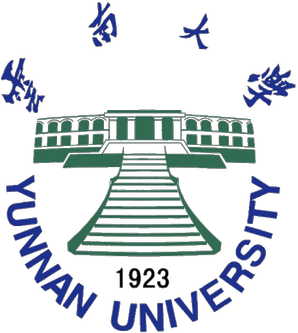
Yunnan University is a provincial public university in Kunming, Yunnan, China. It is affiliated with the Province of Yunnan, and co-funded by the Yunnan Provincial People's Government and the Ministry of Education of China. The university is part of Project 211 and the Double First-Class Construction.
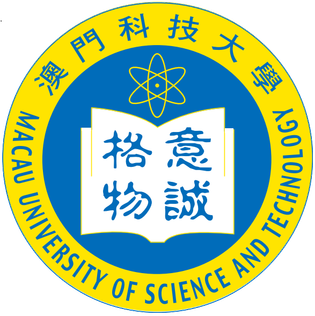
The Macau University of Science and Technology (MUST) is a private university in Taipa, Macau, China.
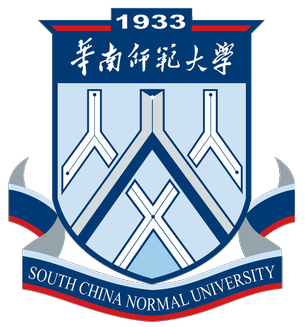
South China Normal University (SCNU) is a provincial public normal university in Guangzhou, Guangdong, China. It is affiliated with the Province of Guangdong, and co-sponsored by the provincial government and the Ministry of Education. The university is part of the Double First-Class Construction and Project 211.

Shanghai Ocean University (SHOU) is a public research university in Shanghai, China, dedicated to the study of aquaculture, marine science and engineering. This university is a part of the national Double First-Class Construction Initiative. It is co-established by the Ministry of Natural Resources, the Ministry of Agriculture and Rural Affairs and the Shanghai Municipal Government.
A law review or law journal is a scholarly journal or publication that focuses on legal issues. A law review is a type of legal periodical. Law reviews are a source of research, imbedded with analyzed and referenced legal topics; they also provide a scholarly analysis of emerging legal concepts from various topics. Law reviews are generated in almost all law bodies/institutions worldwide. However, in recent years, some have claimed that the traditional influence of law reviews is declining.
Tiger parenting is a form of strict parenting, whereby parents are highly invested in ensuring their children's success. Specifically, tiger parents push their children to attain high levels of academic achievement or success in high-status extracurricular activities such as music or sports. The term "tiger mother" was brought to public attention by Yale Law School professor Amy Chua in her 2011 memoir Battle Hymn of the Tiger Mother.

A scholar is a person who is a researcher or has expertise in an academic discipline. A scholar can also be an academic, who works as a professor, teacher, or researcher at a university. An academic usually holds an advanced degree or a terminal degree, such as a master's degree or a doctorate (PhD). Independent scholars and public intellectuals work outside the academy yet may publish in academic journals and participate in scholarly public discussion.
